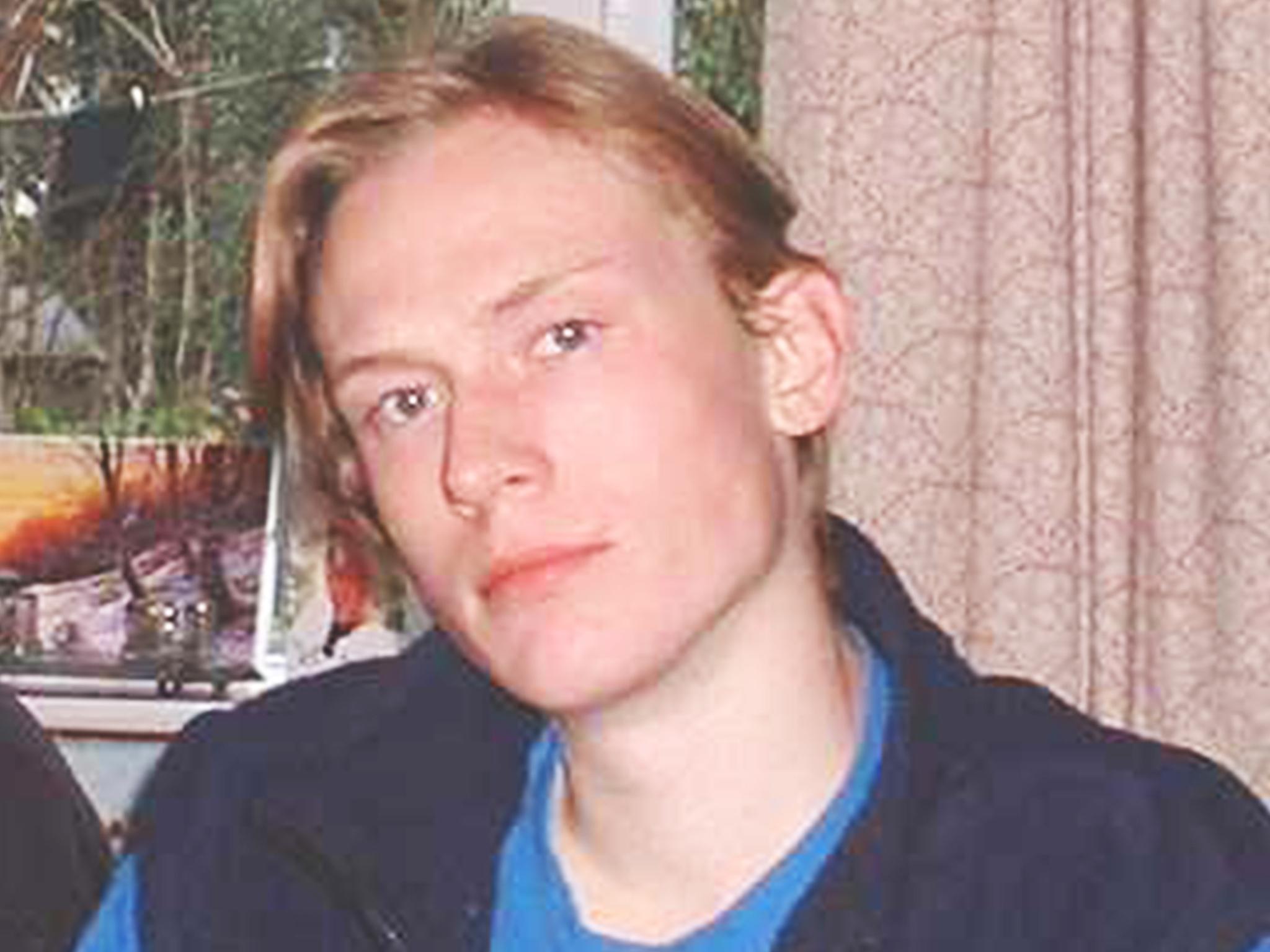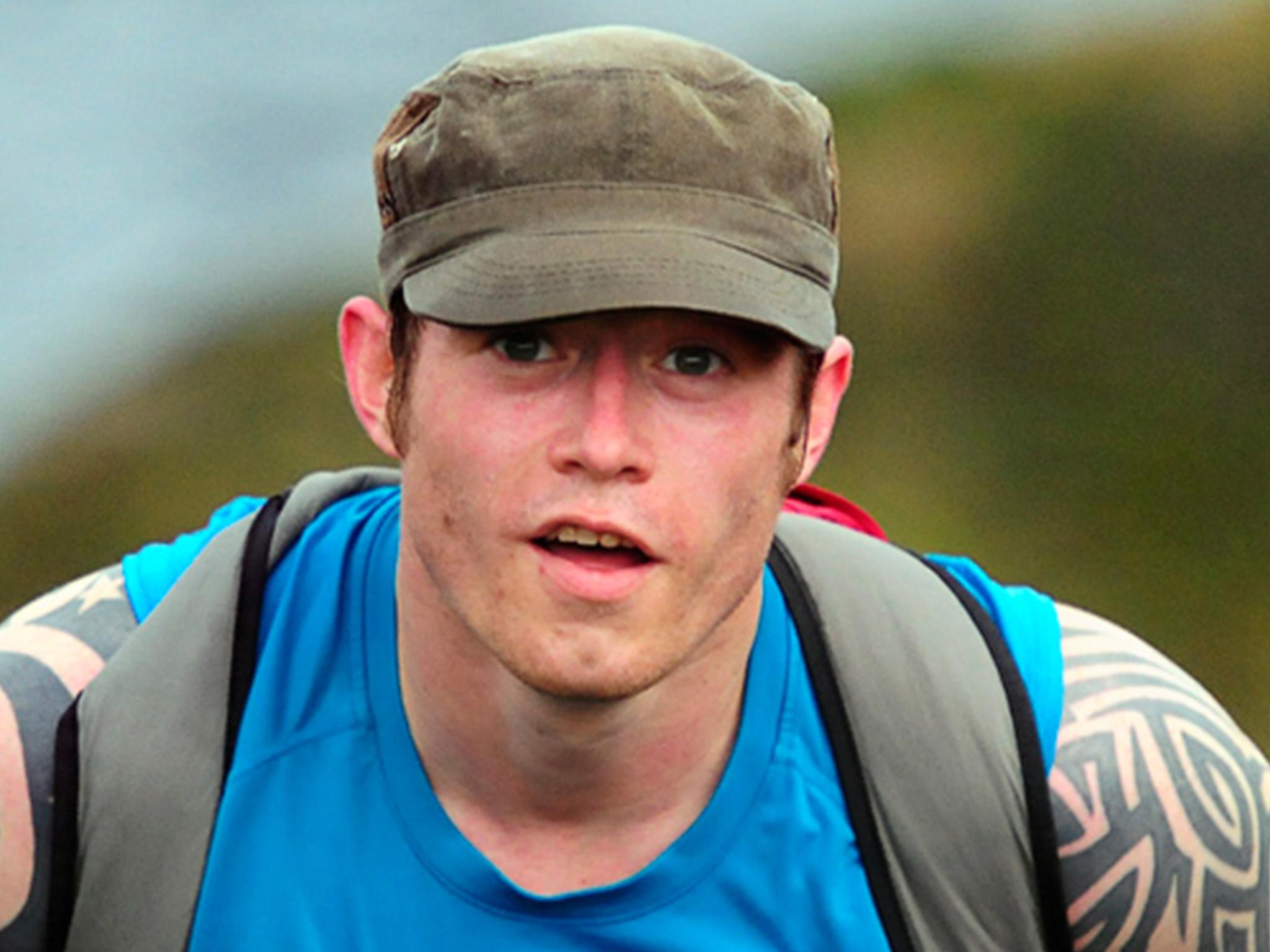The war on drugs 'killed my sons'
As Government figures show, substance abuse deaths have hit record levels. One bereaved mother who lost two sons to heroin tells why she thinks it’s time to legalise and regulate the drugs trade
Your support helps us to tell the story
From reproductive rights to climate change to Big Tech, The Independent is on the ground when the story is developing. Whether it's investigating the financials of Elon Musk's pro-Trump PAC or producing our latest documentary, 'The A Word', which shines a light on the American women fighting for reproductive rights, we know how important it is to parse out the facts from the messaging.
At such a critical moment in US history, we need reporters on the ground. Your donation allows us to keep sending journalists to speak to both sides of the story.
The Independent is trusted by Americans across the entire political spectrum. And unlike many other quality news outlets, we choose not to lock Americans out of our reporting and analysis with paywalls. We believe quality journalism should be available to everyone, paid for by those who can afford it.
Your support makes all the difference.The knock on the door came at 3am: a police officer telling Rose Humphries that a young man had been found dead of a heroin overdose at a house in town.
It was her youngest son Roland, dead at the age of 23.
He had been trying to get off the drug. That morning, a few hours after the police officer left, a letter arrived at the family home stating that Roland had been accepted on a methadone programme to wean him off heroin.
Too late.
Instead, that afternoon Rose and her husband Jeremy went to the mortuary to identify Roland’s body. Even now, she finds the experience too painful to discuss.
Roland’s older brother Jake was so overcome by grief that it drove him back into his own heroin abuse – into more years of wasted, chaotic existence.
But in 2006, Jake went to rehab. He got himself clean, transformed his life, found love and had a baby boy with his partner.
By April 2014, he was close to completing an MA in art psychotherapy, so he could help others overcome their troubles in the way he had. But he had a brief relapse.
While his partner and 20-month-old son were away from his house in south London, Jake, now 37, took heroin. The lodger found him dead of an accidental overdose the next morning.
This time, Ms Humphries received the news in a phone call from her son’s sobbing partner. Again, the details of the conversation remain too painful to discuss.
Ms Humphries, 72, is left to ponder the ‘what ifs’. What if the trade in drugs had been legal, controlled and regulated by government – instead of exploited by criminal gangs?
What if her son had been able to get prescribed heroin, rather than having to trust the quality and safety of drugs sold by criminals? What if he had been able to go to supervised injection facility instead of taking heroin alone?
Of one thing, though, she is absolutely certain.
“The war on drugs killed my sons,” says Ms Humphries. “Definitely. No question about it.”
That’s why she is talking now, to call for the legalisation and proper regulation of the drugs trade, on the day that official figures show – as Ms Humphries fully expected – that substance abuse deaths in England and Wales have hit record levels.
She is determined to tell her story – out of hope, and anger.

The hope, she says, is that “the more often these stories are repeated, and repeated, and repeated, the more it might sink in to people responsible for policy what the reality of the war on drugs is”.
There is anger, too, “when you write to your MP and you just get the stock answer back from Government, simply saying they are quite sure their drugs policies are working, full stop”.
“How they think these drug policies are working, I haven’t the faintest idea. They must be seeing something very different from what we are seeing.”
What Ms Humphries sees is two lost sons, grieving friends and family, and a young boy growing up without a father.
It is all very different from what she knows is the cliché.
“A lot of people,” she says matter-of-factly, “hear about drug addicts dying and just think of some useless person in a shop doorway, homeless perhaps, a scumbag – a lot of people call addicts scumbags. They don’t look beyond that.”
Perhaps, then, the organisation on whose behalf she advocates, Anyone’s Child, a network of families affected by substance abuse, has chosen its name well. They are now calling for a legalised, Government-regulated drugs trade.
Because, to those who knew them, Roland and Jake were anything but scumbags.

“They were both very intelligent,” Ms Humphries recalls. “Jake was very mischievous, very loveable. He always had a pencil or a crayon in his hand. His pictures were fantastic, far in advance of his age group.
“Roland was the daydreamer, always writing little stories about giants and monsters, very loving.”
Nor was home the deprived inner city of cliché.
Rose worked as a secretary, her husband as a printer. They lived in a council house in Finstall, just outside Bromsgrove, Worcestershire: “Lovely neighbours, a green in front of the house, a great big garden. We were extremely lucky.”
But as teenagers do, despite all their parents’ warnings, the boys rebelled.
Ms Humphries is left to tell her story of missed opportunities – of chances to help her boys or divert them from drugs – that were all lost, she says, because the war on drugs makes substance abuse a criminal, not a health matter.
It began, she says, with her sons’ first youthful experimentation with cannabis.
“People talk about whether cannabis is a gateway drug,” says Ms Humphries. “I don’t think cannabis itself is a gateway drug at all. I don’t think the fact that somebody smokes cannabis will of itself make them want to try heroin.
“But at the moment cannabis is a gateway drug because the trade is controlled by criminals, not regulated by the Government.
“So taking cannabis delivers people into the hands of criminals who want them to try something harder so they can make more money out of them.”
And so it was with her boys.
“I don’t feel they would ever have got so bad if it hadn’t have been for the criminal aspects of the whole thing: if there had been proper, legal regulation, rather than control by criminal cartels.”
At first she put Jake and Roland’s poor performance at the local comprehensive down to teenage rebellion.
Bu when Jake was in his late teens, a ‘friend’ knocked on the door of the family home demanding money, suggesting windows would be broken if he wasn’t paid. Aged 18, Roland confessed to his mum that he was smoking heroin, while insisting that as long as he didn’t inject he “could handle it”.
She felt physically sick. She pleaded with her sons to stop their drug use. But she didn’t call anyone in authority to ask for help. She kept it quiet, and paid off Jake’s ‘friend’.
“I wanted to call the police, but they would have come round asking questions. They might have found about Jake and Roland’s involvement in drugs, and then they would have got into trouble.
“Would I have gone to get help for both boys if drugs had been legalised? Yes, of course I would.”
When Jake was 18, she adds, he was convicted of cannabis possession. He was fined. What is less clear is whether he was helped.
“Much later,” says Ms Humphries, “Jake told me he thought the newspaper report of his case labelled him as a hopeless druggie. He felt it set him more firmly on the downward path.”
Both boys’ drug abuse worsened. They never lost the good sides to their characters, their mother insists, but heroin created darker traits.
“They would steal from us. I had to keep my handbag on me at all times, or lock it in the bedroom. Yes, we got a lock for our bedroom door.”
“It’s dreadful,” adds Ms Humphries. “You feel that nobody else in the whole world has to do this. You wonder what’s wrong with you.”
Again, instead of getting help to stop their sons’ illegal drug use, she and her husband felt compelled to suffer in silence.
“There is such shame and stigma around it,” she says. “We lived with this awful problem for years and years. I couldn’t bring myself to tell anybody about it.
“Sometimes I would go to work wanting to burst into tears, unable to tell anybody what was the matter. If I did say anything about what my sons had been doing, I would say ‘I’m afraid they have been drinking’. It seemed more socially acceptable.”
Eventually Roland did seek help. But six weeks into his wait to be accepted on a methadone programme, in October 2003, Roland was invited round to a friend’s house for the evening.
“He told me he would be back at 10 or 11pm,” says Ms Humphries. “He never came back.”
The heroin in Roland’s system combined with the alcohol he had drunk to suppress his breathing.
And, says Ms Humphries, even as the heroin was taking lethal effect, the war on drugs was stopping medical help from getting to Roland in time to save his life.
“We now know,” she explains, “That after one of them noticed that Roland was slumped in the bathroom and his lips were blue, there was a delay before the ambulance was called.
“I gather a lot of them were running around like headless chickens for quite a while before someone phoned 999.
“The ambulance got there too late. That delay was caused because the people in the house were afraid of the consequences of being involved with somebody who had died from drugs.
“I am quite sure there wouldn’t have been that hesitation if – as it should be – it had been regarded as a health issue, not a criminal issue.”
Jake, she says, took his brother’s death extremely badly, his renewed heroin abuse causing him to drop out of Aberystwyth University.
“You would have thought it would be sufficient warning to Jake to never touch drugs again. But he was in pain, and if you have taken heroin, you know how it can take away that pain.”
The transformation, though, after he went to rehab and got clean in 2006 was “astonishing”.
“My favourite memory of Jake is of seeing him play with his son. He was fantastic with children, a great father.”
Jake’s son is now five.
“We try to keep Jake’s memory alive for him,” says Ms Humphries. “He doesn’t yet really understand why Jake died.”
She tries to lead as ordinary a life as possible, she adds. “It’s only when something catches you unawares – music coming from a shop doorway, triggering a memory – that your eyes fill with tears.”
She sees some encouraging signs.
“I was speaking at a conference in Durham the other week, in a room full of police, people from the criminal justice system, and healthcare professionals, and they were unanimous that legal regulation of drugs must come.”
If that happened, and her campaigning played a part in it, she says, her sons’ deaths would not have been completely in vain: “They would be proud of me.”
One day, she insists, the politicians will see what she sees.
“I think the politicians will listen eventually,” she says. “I just don’t know how long it take – or how many deaths.”

Join our commenting forum
Join thought-provoking conversations, follow other Independent readers and see their replies
Comments